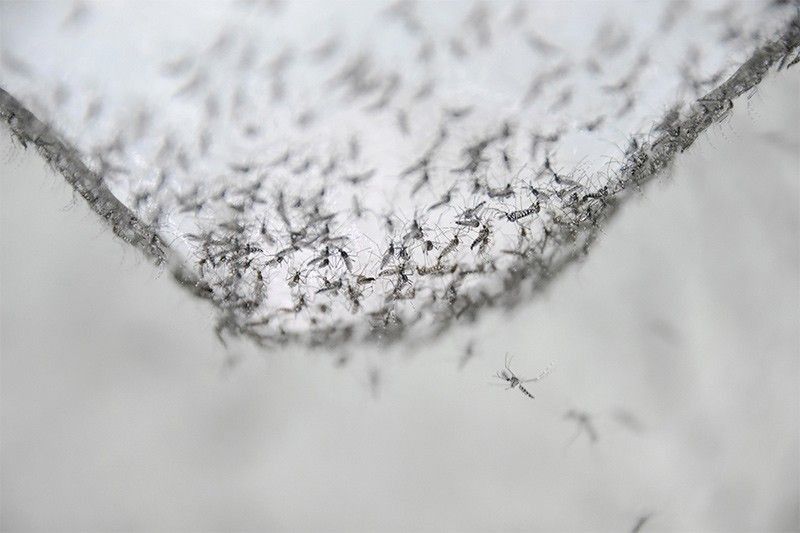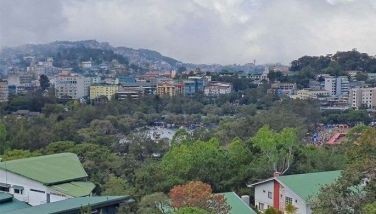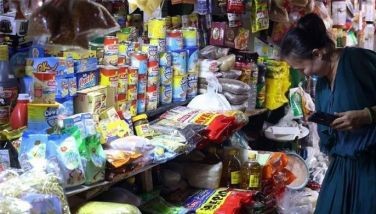Bataan villagers rewarded for ‘snaring’ mosquitoes

BATAAN, Philippines — A barangay chairman of the upland village of Alion is launching a novel method of eradicating dengue, and rewarding those who catch the mosquitoes carrying the virus in the locality.
Barangay chairman Marcialito Balan yesterday announced the project which suggested using cooking oil spread on pans or plates to catch dengue-carrying mosquitoes. The project goes further, rewarding a kilo of rice “for every 200 mosquitoes presented to him,” to persons using the oil pan method.
The barangay chair has allocated 10 cavans of rice for the program until the end of the rainy season.
Balan said about 18 private and public organizations have expressed cooperation in the search and destroy program, to ensure the safety and welfare of around 3,000 households, many of whom are farmers and factory workers from the freeport area of Bataan.
Earlier, Mariveles, Bataan Mayor Jocelyn Castañeda had encouraged officials of the 18 barangays to embark on useful health and sanitation programs to prevent the recurrence of a dengue outbreak in the province’s industrial town.
She has instructed the municipal health officer, workers and barangay leaders to assemble sectoral agencies to carry out systematic schemes toward removing the breeding places of dengue-carrying mosquitoes.
Castañeda identified the two types of dengue-carrying mosquitoes, Aedes aegypti and Aedes albopictus, which are reportedly found at the foreign workers lodging compound near the periphery of the 600-megawatt GNPower coal plant in the coastal village of Saysain. It was here where more than a hundred Chinese construction workers were struck by dengue from May to August this year.
However, Dr. Rosanna Buccahan, Bataan provincial health officer, noted that dengue cases this year are 21 percent lower, with 989 cases in the province from January to August this year, as compared to last year for the same period at 1,252 cases.
‘Clearly a PR campaign’
Meanwhile, Sen. Richard Gordon slammed pharmaceutical company Sanofi Pasteur’s latest publicity campaign, which spurred the latest debate on the reintroduction of the controversial Dengvaxia vaccine to address the dengue epidemic.
Gordon said the debate was inspired by a publicity campaign aimed to clear the French manufacturer’s name and enable it to escape litigation for civil liability.
“The entire debate on whether or not Dengvaxia can be introduced to address the ongoing epidemic is clearly a PR campaign of Sanofi to clear their name and escape litigation for civil liability. It’s a PR stunt for Sanofi to pave the way for a new license,” Gordon said.
“And if and when this is granted, they will shake the dust off and say ‘there was nothing wrong with our product. There was something wrong with the way you Filipinos used it,’” he warned.
In a late 2017 statement, Sanofi advised that the vaccine should only be used on people who have previously been infected with dengue. Experts have recommended lifting the ban on the use of Dengvaxia in private clinics, saying there is a testing tool available in the country to detect previous dengue infections.
The experts added that a blanket ban on Dengvaxia should not be imposed because there is still a way to identify past dengue infections.
Gordon warned against being taken in by Sanofi’s strategy, pointing out that Dengvaxia cannot be used for mass vaccination in the absence of a reliable and affordable test to establish seronegative — meaning negative presence of a virus — status. – With Cecille Suerte Felipe
- Latest
- Trending




























